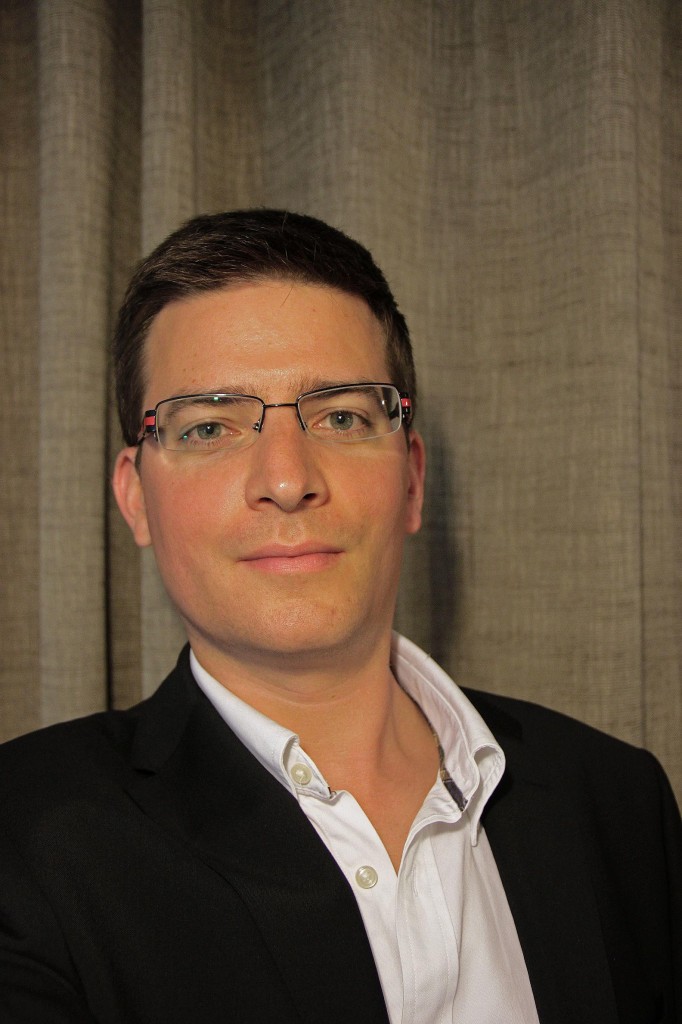 Julien Poly received chemistry diplomas from “Ecole Normale Supérieure de Cachan” and “Ecole Nationale Supérieure de Chimie de Paris”. He obtained his PhD in polymer chemistry in 2008 from the University of Bordeaux, where he studied the synthesis of nanogels by controlled radical crosslinking copolymerization under the supervision of Prof. Daniel Taton. In 2009, he was appointed as assistant professor at the University of Haute-Alsace. He joined the CNRS institute IS2M, where he is now developing macromolecular synthesis for surface engineering.
Julien Poly received chemistry diplomas from “Ecole Normale Supérieure de Cachan” and “Ecole Nationale Supérieure de Chimie de Paris”. He obtained his PhD in polymer chemistry in 2008 from the University of Bordeaux, where he studied the synthesis of nanogels by controlled radical crosslinking copolymerization under the supervision of Prof. Daniel Taton. In 2009, he was appointed as assistant professor at the University of Haute-Alsace. He joined the CNRS institute IS2M, where he is now developing macromolecular synthesis for surface engineering.
Please follow the link to get more information on Julien’s research institute and his recent paper in Polymer Chemistry.
What was your inspiration in becoming a chemist?
I was first of all interested in sciences in general, but like many others, I was mainly attracted to chemistry thanks to excellent teachers and to fascinating experiments. The learning then of some of the elegant theories governing chemistry definitely convinced me to become a chemist.
What was the motivation behind the research in your recent Polymer Chemistry paper? (DOI: 10.1039/c1py00231g)
My research activities concern principally the synthesis of branched or crosslinked polymers by controlled radical polymerizations. I wanted to develop a new strategy for the synthesis of well-defined branched poly(vinyl acetate)s, which are commonly used polymers, by combining the concept of SCVP with a xanthate-mediated RAFT mechanism. I appealed to the skills of Dr. Nicolas Blanchard in organic chemistry for the preliminary synthesis of the original polymerizable xanthate, which was a little bit tricky.
Why did you choose Polymer Chemistry to publish your work?
Polymer Chemistry has become one of the top journals in Polymer Science, with a particular focus on synthetic aspects. This was therefore an ideal place to publish this work. Additionally, I appreciated the publication process, which was especially efficient.
In which upcoming conferences may our readers meet you?
I will attend the Aquitaine Polymer Conference in Arcachon, France in October. I will be then at the Pacific Polymer Conference in Jeju, South Korea in November, where I will present the results from this paper.
How do you spend your spare times?
I often do do-it-yourself or restore secondhand goods. More usually, I enjoy reading, cooking, swimming and travelling.
Which profession would you choose if you were not a scientist?
I might have been a cabinetmaker or an antique dealer. Being a gastronomic critic would have been another pleasant profession too!










